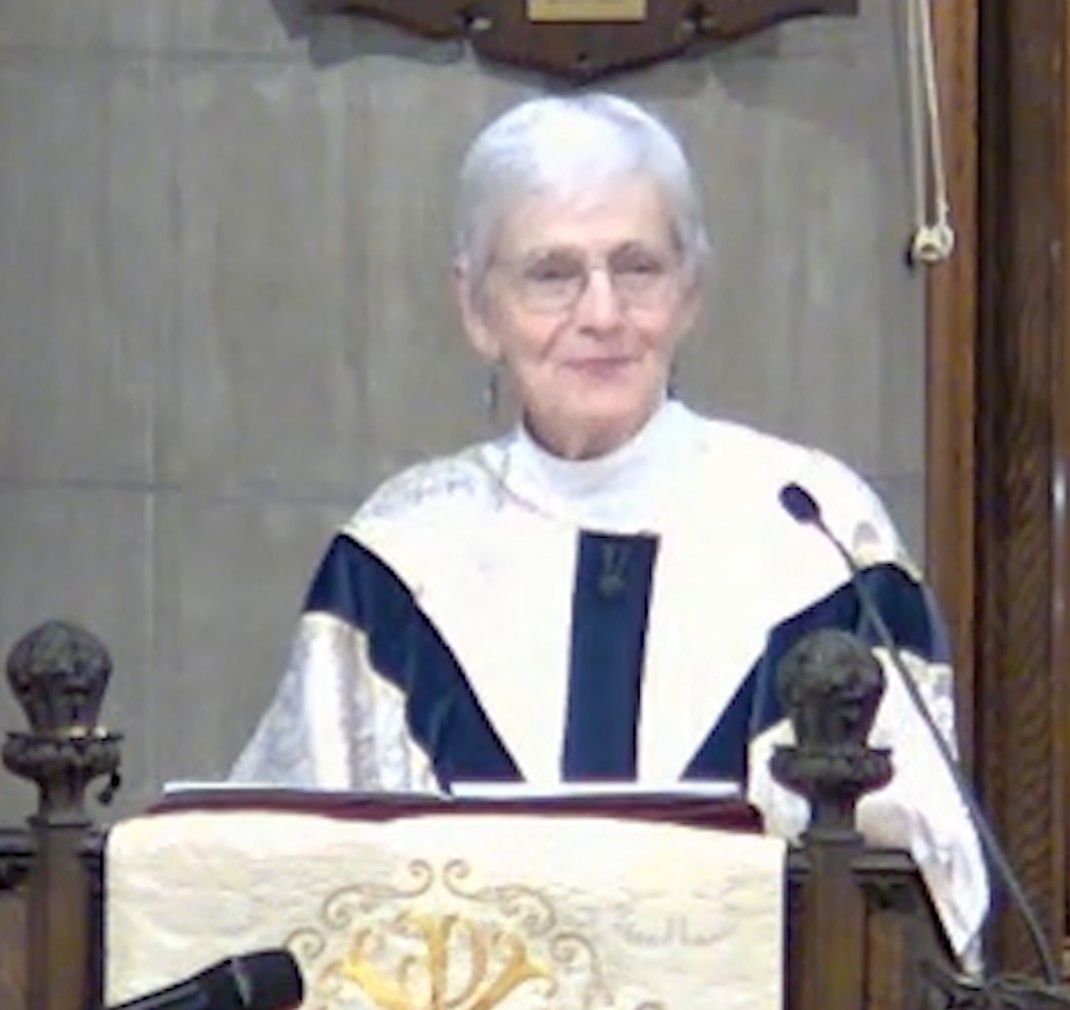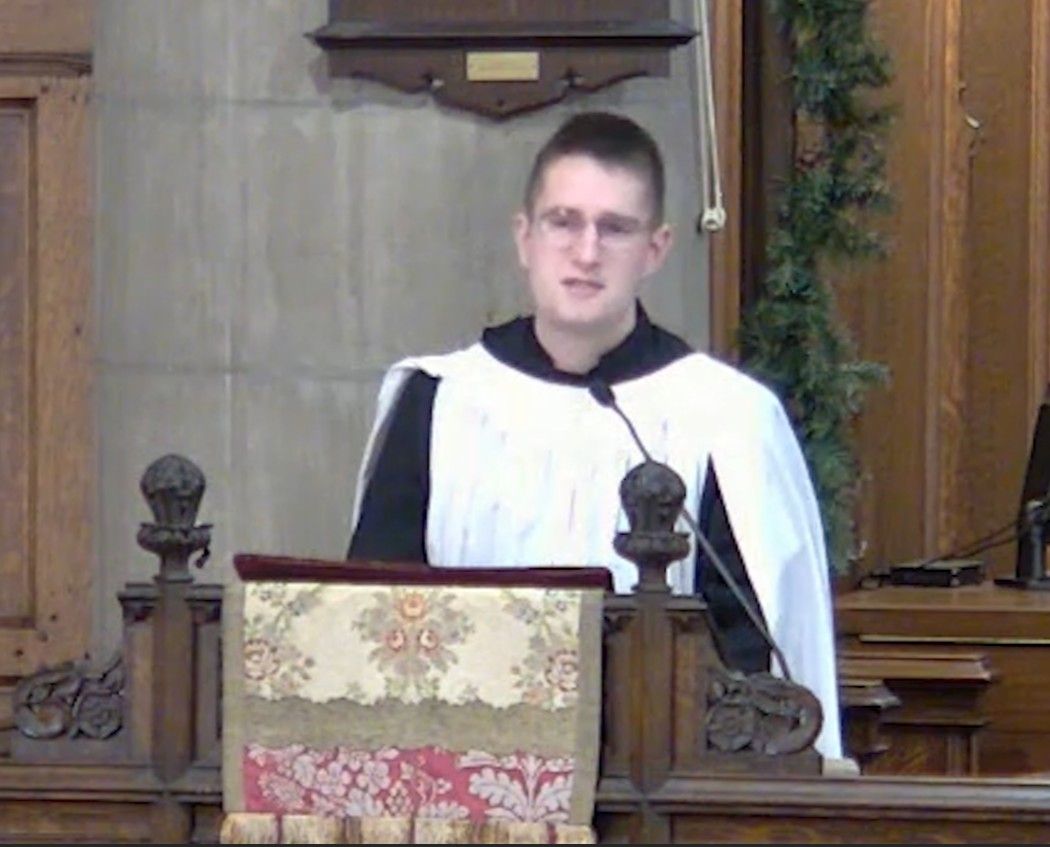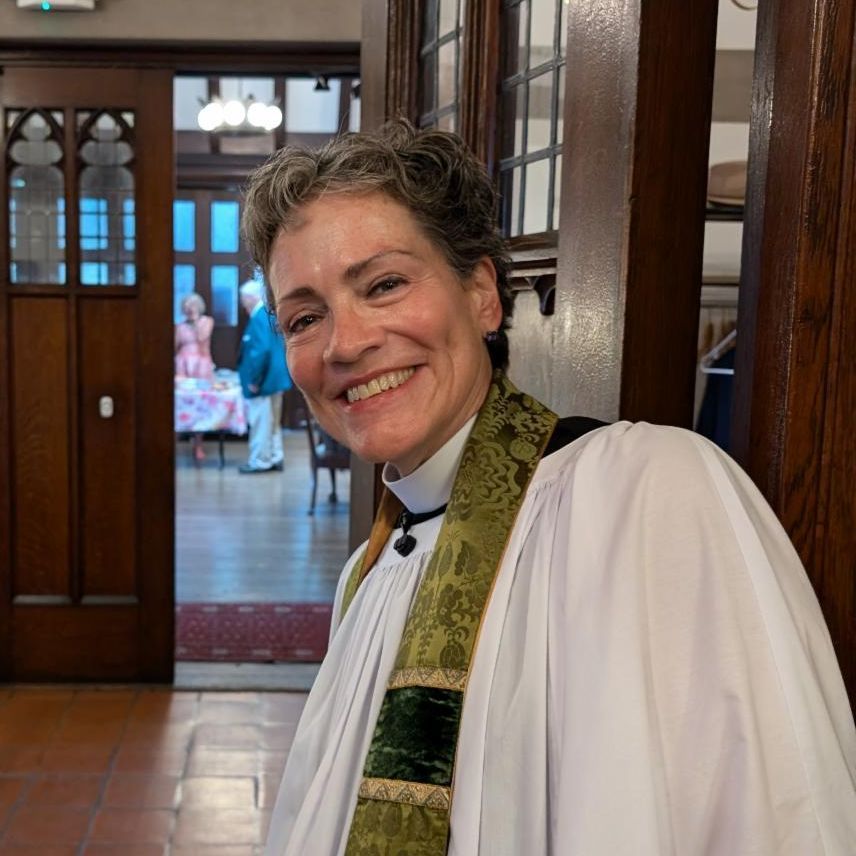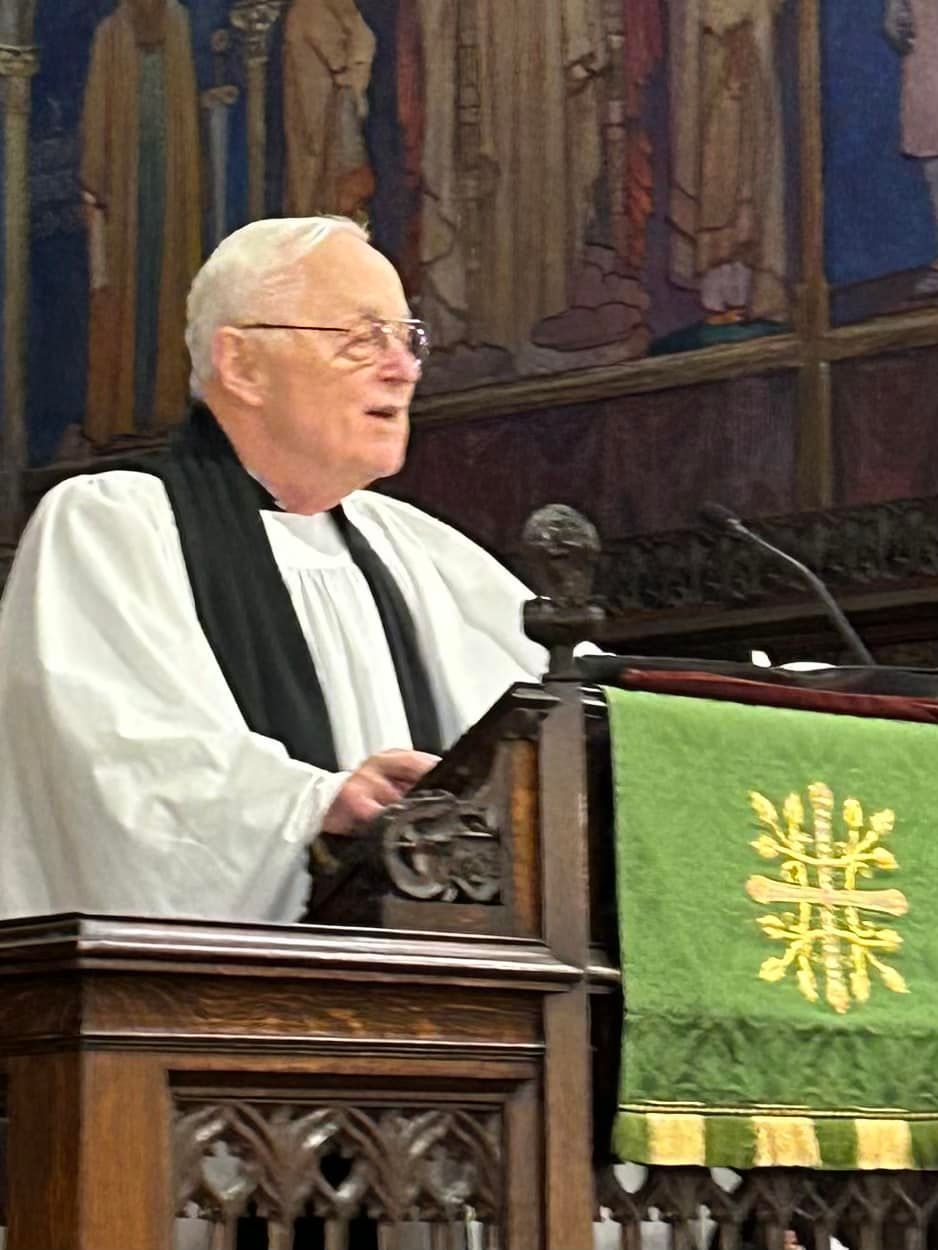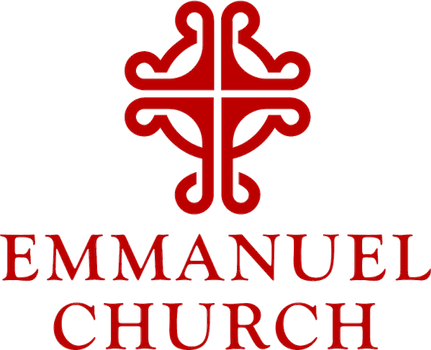Peter's Amazing Technicolor Dream Sheet
Sermon for the Fifth Sunday of Easter by the Rev. Della Wager Wells
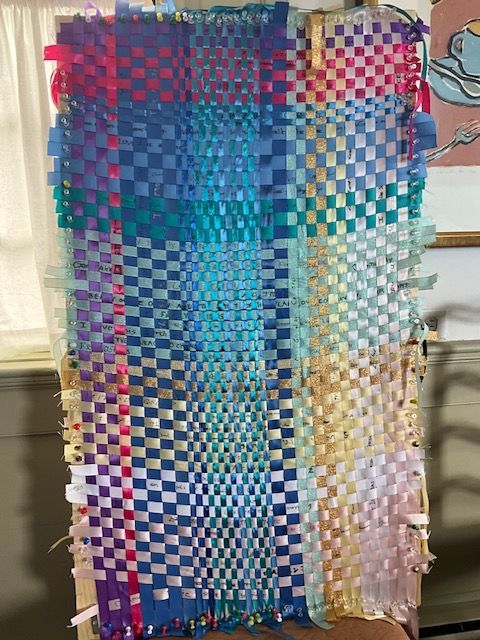
I love the Hebrew Bible stories of our ancestors in the faith — wonderful, instructive tales of reluctant prophets, unlikely kings, and mighty women who always find a way. But I really look forward to the 50 days of Easter, when the first reading each week is from the Acts of the Apostles —ordinary people like you and me, just walking around in the every day of it all, trying to figure out what a resurrected life in God is all about. Their adventures, failures, fears, conversions, and insights — recorded by the same writer as Luke’s gospel — are a deep well of insight. These folks are struggling with the same kinds of things that we are today — how to live in community — even when they all come from different traditions and lived experiences and see things in different ways.
This is Peter’s epiphany in our reading from Acts this morning, when he realizes that God has given new life to everyone and not only to those who look like, think like, cook like, eat like, and sound like his friends back home in the Galilee. I can really relate to what Peter is struggling with in his great vision today — trying to reconcile everything he’s ever learned, known, studied, and lived — with the new inclusive, expansive life God is showing him. He’s seeing things in a new way, realizing that his own experience is particular to him, and not the limit, or the definitive picture, of God’s love and understanding.
Here at Emmanuel, just like any community, we are of as many minds as our own individual contexts. Remember the ribbons we flew on the fence during Lent? We wrote on them what we love, what gives us joy, our favorite things about this community, our liturgy, and our church. I gathered the ribbons up and washed them after Palm Sunday, and Jere made me a frame — like a loom — to work with. I’ve been weaving them in the evenings while Jere and I watch British detective shows. I’ve thought of Peter’s epiphany this week as I’ve run my fingers over these ribbons — different widths, colors, textures, and lengths — kind of like us. The affirmations and gratitudes written on the ribbons melted my heart: family, children and dogs, my cats, the sea, the mountains, my wife Fay, music, Randy, music, music, the community, and MUSIC (I kind of discerned a theme there).
While we were tying ribbons on the fence during Lent, many of us, including me, wondered how we would weave all those different colors, widths, lengths, and textures of ribbon together. Just like in Peter’s epiphany, we are all unique individuals — each of us made in the image of God and woven into the fabric of our community. And I believe that just like our cloth of ribbon affirmations and gratitudes, our differences make us versatile and resilient when we’re woven together.
Many Episcopal churches include banners in the procession with the cross, the choir, and the clergy, often displaying the name of the church, one of its ministries, or the names of children being baptized that day. At All Saints’ Atlanta, where Jere and I worshiped for over 30 years, my favorite banner was the Anglican Communion banner, which traveled to Rhode Island with beloved All Saints’ parishioners from our longtime worshiping community to process at both of my ordinations — to the transitional diaconate at Christ Church, Westerly, and to the priesthood at St. Martin’s in Providence.
I was talking to Paige Dinger Saturday, planning how we might finish weaving the ribbons of our community together, and we hit on the idea of a processional banner. We haven’t used banners in recent years at Emmanuel, but what if this woven-together, all sorts ribbon fabric of our community was appliquéd with the Emmanuel name and our now-familiar logo cross — and processed at every service? (I saw Saturday night that Ellen has had an Emmanuel shirt made with the cross. See her if you want to order one!)
We spend a lot of time thinking about, talking about, and intentionally building community at Emmanuel, not just here in Newport, but overseas — and I don’t just mean over the bridges and off-island in the Diocese of Rhode Island, but with communities and friends all over the the world — London, Dodoma, Jerusalem, Accra, Taiwan, Rio de Janeiro, New York, Cape Town, Tanga, Atlanta, Gaza City, Hong Kong, Nairobi, Madagascar, Houston, Charlotte, Dar es Salaam, Lake Rukwa, Montevideo, Kasulu, Zanzibar.
People there know us and pray for us at Emmanuel Church, and we pray for them through the Anglican Communion cycle of prayer. That’s why we are intentional about praying the cycle of prayer — to remember we are connected to joys and concerns and community much larger than ourselves. Community helps us to connect with one another and understand what it means to belong — to God, to our environment, and to each other — and why that matters so much, not just to our own emotional and physical health, but — and I’m not just being dramatic here — to our very survival as human beings.
You’ll hear more from me over the next couple of weeks about Harvard social scientist Robert Putnam’s April visit to Newport. Professor Putnam, who wrote Bowling Alone and Upswing, tells us that our connections in community, and the trust and norms that enable us to work productively together, have significantly declined in the United States since the 1960s, leading to reduced civic engagement and weakening American democracy and community life. The recent documentary Join Or Die — a film about why you should join a club… and why the fate of America depends on it (as the promotional materials boldly claim) is now streaming on Netflix, and I highly recommend it.
Community is real and serious business. You may remember that we explored the beneficial health effects of connection in community last year during Lent with our Church* Saves Lives program. Connection in community is the antidote to loneliness, depression, anxiety, addiction, and other forms of self-harm. Being in community helps us to stay well longer, recover more quickly after illness or injury, and lowers dangerous cortisol levels. Community also gives us the opportunity to live in the light of Peter’s great epiphany — that God’s love is for everyone, not just those who look like us, speak like us, and agree with us already.
Living in community helps us practice navigating difference within the context and promise of looking out for each other’s best interest and the good of the whole. Community gives us the chance to practice Jesus’ New Commandment to love one another that we read this morning in John’s gospel, walking in love as he loved us, giving himself as an offering and sacrifice to God, with our all our difference and unique perspectives woven together. We know we’re even more different than all of those ribbons sharing what we love, who we care about, and what we treasure about our community.
And here’s the deal: Professor Putnam’s scholarship tells us with objective data that our country’s current levels of social connection are at an all time low — even lower than immediately following the Civil War. But he has a optimistic view for the future, and I think I can see the features that give rise to his hope right here at Emmanuel. In the early 1900s, there was a wave of formation of clubs and associations — think Girl Scouts, Boy Scouts, and lodges and civic associations like Rotary, and continued and deepening relationships with communities of faith. Church. This movement didn’t come, Professor Putnam tells us, from major cities, from big industry or corporations, Ivy League universities, government, or C-suite executives with a lifetime of experience and know-how. The movement came from small towns, states that aren’t on either coast, workers, students, and young people. These organizations grew social cohesion and connection, building character and reinforcing connection, cooperation, and respectful disagreement. This flourishing of civic engagement reached its peak in the 1960s, in a way that maybe some of us older adults remember: 4H, PTA, the Masonic Lodge, the Hibernian Society, bowling leagues, garden clubs.
Professor Putnam’s message? We did it before, and we can do it again, starting right here at Emmanuel. We have everything we need: diversity, young people, a small city in a small state, and a brand new processional banner in all of the colors, textures and shapes God made. Amen
*mosques save lives; temples save lives. It’s the community of faith that matters, as faith commitments have as their foundation the common good and concern for other human beings.

